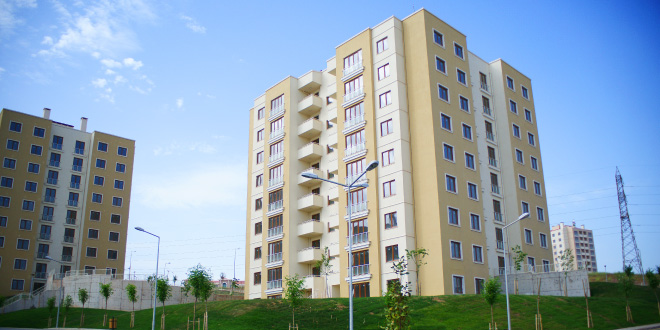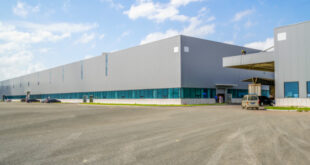Discover the top 7 deals for commercial property for rent near me. Explore expert insights, market trends, and practical tips to secure your ideal business space.
Top 7 Essential Commercial Property for Rent Near Me Deals
Commercial property rentals play a vital role in business growth. This detailed guide provides insights, expert tips, and step-by-step advice on how to secure the perfect commercial property for rent near you. Whether you are launching a new venture or expanding an established business, understanding the market and your needs is key.
Introduction
Securing commercial property for rent near you can transform your business operations. The right location combined with well-structured lease terms helps foster growth and ensures a productive work environment. In this article, we delve into the latest market trends, factors to consider when choosing a property, and strategies for negotiating favorable lease terms. We also offer expert advice and actionable tips to help you make a well-informed decision.
Table of Contents
Overview of Commercial Property Rentals
Commercial properties come in various forms, including office spaces, retail outlets, industrial warehouses, and mixed-use developments. Renting a commercial property means gaining access to an environment tailored to your business needs without the heavy financial burden of ownership.
Types of Commercial Properties
- Office Spaces: Ideal for businesses needing dedicated work environments and meeting rooms.
- Retail Properties: Best suited for businesses that rely on customer foot traffic and require prime locations.
- Industrial Warehouses: Offer large spaces for storage, manufacturing, or distribution.
- Mixed-Use Developments: Combine elements of residential, retail, and office spaces to provide versatile solutions.
Each property type has its unique benefits, and your choice should align with your business model and growth plans.
Benefits of Renting Commercial Property
Renting commercial property offers several advantages over buying. Here are some key benefits:
- Lower Upfront Costs: Renting generally requires less initial capital compared to purchasing.
- Flexibility: Shorter lease terms allow businesses to adapt to changing market conditions.
- Maintenance and Upgrades: Landlords often handle maintenance, allowing you to focus on core business activities.
- Location Advantages: Renting enables you to choose premium locations that might be unaffordable for buying.
These benefits contribute to a cost-effective and scalable solution for businesses of all sizes.
Factors to Consider When Choosing a Commercial Property
Selecting the right commercial property requires careful analysis of several factors. Below are the key considerations:
1. Location and Accessibility
Location is paramount in determining the success of your business. Look for properties that offer easy access for employees, customers, and suppliers.
- Visibility and Foot Traffic: Prime locations with high visibility can boost brand recognition.
- Transportation: Ensure the property is near major roads, public transit, and has ample parking.
- Neighborhood Profile: Research the local area to determine if it aligns with your target market demographics.
2. Property Size and Layout
The size and layout of the property should match your business operations.
- Current Needs vs. Future Growth: Consider the space you need today and potential expansion.
- Floor Plan Flexibility: A flexible layout can be adapted to different business activities.
- Infrastructure: Ensure the building supports your technological and operational requirements.
3. Lease Terms and Conditions
Lease agreements vary widely, so it’s essential to understand every clause before signing.
- Lease Duration: Decide if you need a short-term lease for flexibility or a long-term lease for stability.
- Renewal Options: Check for clauses that allow lease renewals on favorable terms.
- Exit Strategies: Understand penalties, break clauses, and any conditions for early termination.
4. Financial Considerations
Renting a commercial property involves more than just the monthly rent. Consider the total cost of occupancy.
- Rent and Additional Costs: Factor in maintenance fees, insurance, utilities, and property taxes.
- Budget Planning: Develop a clear budget that considers all potential expenses.
- Market Comparison: Research similar properties to ensure the rent is competitive.
5. Amenities and Facilities
Modern commercial spaces offer a range of amenities that enhance productivity and comfort.
- Security: Look for properties with robust security systems, including surveillance and controlled access.
- Technology: Ensure high-speed internet and modern communication systems are available.
- Common Areas: Consider shared spaces such as lobbies, meeting rooms, and break areas.
Step-by-Step Guide to Securing Commercial Property
Finding and renting the perfect commercial property involves a series of well-planned steps. Here’s a detailed process:
Step 1: Define Your Business Requirements
- Determine Space Needs: Evaluate the size and layout requirements based on your operations.
- Location Priorities: List the must-have location features, such as proximity to customers or suppliers.
- Budget: Set a clear budget, including all recurring and incidental costs.
Step 2: Research and Shortlist Properties
Utilize multiple sources such as online listings, real estate agents, and local business networks. Compile a list of properties that meet your criteria.
- Online Platforms: Use reputable property rental websites and filters to narrow down your options.
- Networking: Attend local business forums or real estate events to gather insider information.
- Comparative Analysis: Compare shortlisted properties based on size, location, and cost.
Step 3: Visit and Evaluate Properties
Schedule property visits to inspect the condition, layout, and surrounding infrastructure.
- Property Tour: Walk through the premises to assess the layout and condition.
- Neighborhood Check: Visit the neighborhood to evaluate accessibility, safety, and nearby amenities.
- Documentation: Request detailed information about lease terms, maintenance responsibilities, and any additional fees.
Step 4: Negotiate Lease Terms
Once you have identified a suitable property, begin negotiations with the landlord or property manager.
- Market Research: Use your research to support your negotiation for competitive rent.
- Flexible Terms: Aim for lease terms that allow flexibility, such as renewal options or break clauses.
- Professional Help: Consider hiring a legal expert or real estate advisor to review the lease agreement.
Step 5: Finalize and Sign the Lease
After negotiations, carefully review the lease agreement before signing.
- Legal Review: Have a legal professional review all terms to ensure your interests are protected.
- Clarification: Request clarification on any ambiguous clauses or additional costs.
- Agreement: Once satisfied, sign the lease and complete any required documentation.
Financial Planning and Budgeting Tips
Managing finances is a crucial part of renting commercial property. Here are some practical budgeting tips:
Develop a Comprehensive Budget
Create a budget that covers all aspects of occupancy.
- Monthly Rent: Clearly understand the base rent and how often payments are due.
- Utilities and Maintenance: Include estimates for utilities, maintenance, and any service charges.
- Unexpected Expenses: Set aside a contingency fund for unexpected costs such as repairs or upgrades.
Consider Financing Options
Explore financing options that can support your rental needs.
- Business Loans: Investigate commercial loans that offer favorable interest rates.
- Leasing Incentives: Some landlords may offer rent-free periods or reduced deposits.
- Partnerships: Consider partnering with investors or using business credit to ease financial pressures.
Negotiating Lease Terms: Key Strategies
Negotiating your lease effectively can save you money and provide flexibility. Here are some key strategies:
Research and Preparation
- Market Comparisons: Compare similar properties to determine a fair market value.
- Know Your Needs: Clearly outline your requirements and stick to them during negotiations.
- Professional Guidance: Use a legal advisor or real estate expert to support your negotiation efforts.
Negotiation Tactics
- Ask for Incentives: Request benefits such as rent-free periods, lower deposits, or contributions toward interior improvements.
- Flexible Clauses: Negotiate flexible lease terms like renewal options, break clauses, and subletting rights.
- Open Communication: Maintain clear communication with the landlord to address concerns and build rapport.
Market Trends and Future Projections
Understanding current market trends is key to making informed rental decisions. Below are some trends shaping the commercial property market for rent near you:
Current Trends
- Increased Demand: Businesses are increasingly opting for rented commercial spaces to reduce upfront costs.
- Location-Specific Growth: Certain areas see higher demand due to improved infrastructure and economic development.
- Tech Integration: Modern properties now feature smart technology for energy efficiency and security.
Future Projections
Experts predict that the trend of renting commercial property will continue to grow as businesses seek flexible and cost-effective solutions.
- Sustainable Developments: Green building practices and sustainable technologies will play a larger role.
- Dynamic Lease Structures: More landlords are expected to offer flexible leasing options to attract tenants.
- Market Stabilization: Economic fluctuations may lead to more stable rental rates over the coming years.
For further insights, you can refer to the Wikipedia page on commercial real estate for additional context and historical data.
The Role of Technology in Commercial Rentals
Technology has transformed how commercial properties are marketed and managed. Below are some technological advancements impacting the market:
Virtual Tours and Online Listings
- Enhanced Property Viewing: Virtual tours allow prospective tenants to explore properties without physical visits.
- Detailed Listings: Online platforms provide comprehensive details, including floor plans, amenities, and neighborhood insights.
- Time Efficiency: Digital tools reduce the time spent on preliminary property research.
Smart Building Technology
- Energy Efficiency: Smart thermostats and lighting systems help reduce energy costs.
- Security Enhancements: Advanced security systems, including smart locks and surveillance, improve safety.
- Data Analytics: Real-time data on building performance helps optimize maintenance and operations.
Case Study: A Successful Commercial Rental Journey
Consider the journey of a local startup that required a flexible commercial space. They began by assessing their needs, researched multiple properties online, and scheduled visits to their shortlisted properties. Through clear negotiations and professional legal advice, they secured a property that not only fit their budget but also offered future expansion opportunities. Their experience underscores the importance of thorough research, clear communication, and strategic planning in securing a commercial property for rent.
Frequently Asked Questions (FAQs)
Below are some common questions related to commercial property for rent near me:
What is the advantage of renting commercial property over buying?
Renting offers lower upfront costs, more flexibility with lease terms, and often includes maintenance and upgrades handled by the landlord.
How do I determine if a property is located in the right area?
Consider factors such as accessibility, neighborhood demographics, proximity to key amenities, and overall market demand. Research online reviews and speak with local experts.
What should I look for in a lease agreement?
Ensure the lease covers rent details, duration, renewal options, maintenance responsibilities, and any potential hidden fees. Always have a legal professional review the terms.
Are there financing options available for renting commercial property?
Yes, many businesses opt for commercial loans, leasing incentives, or partnerships to manage rental expenses. Speak with a financial advisor to explore your options.
How can I negotiate better lease terms?
Research the market, compare similar properties, and seek professional advice. Be clear on your business needs and negotiate for flexibility, such as renewal clauses and incentive periods.
Conclusion and Call to Action
Securing the ideal commercial property for rent near you is a strategic move that can drive business success. By understanding market trends, evaluating location and financial factors, and negotiating favorable lease terms, you can find a space that meets your current needs and future ambitions.
For personalized advice and expert guidance on commercial property rentals, visit Nexmove. Their dedicated team is ready to assist you with current listings, market insights, and professional consultation tailored to your business. Contact Nexmove today to take the next step in securing your ideal commercial property.
 NexMove Home & Investment Guide Find Your Perfect Property, Invest Wisely.
NexMove Home & Investment Guide Find Your Perfect Property, Invest Wisely.





